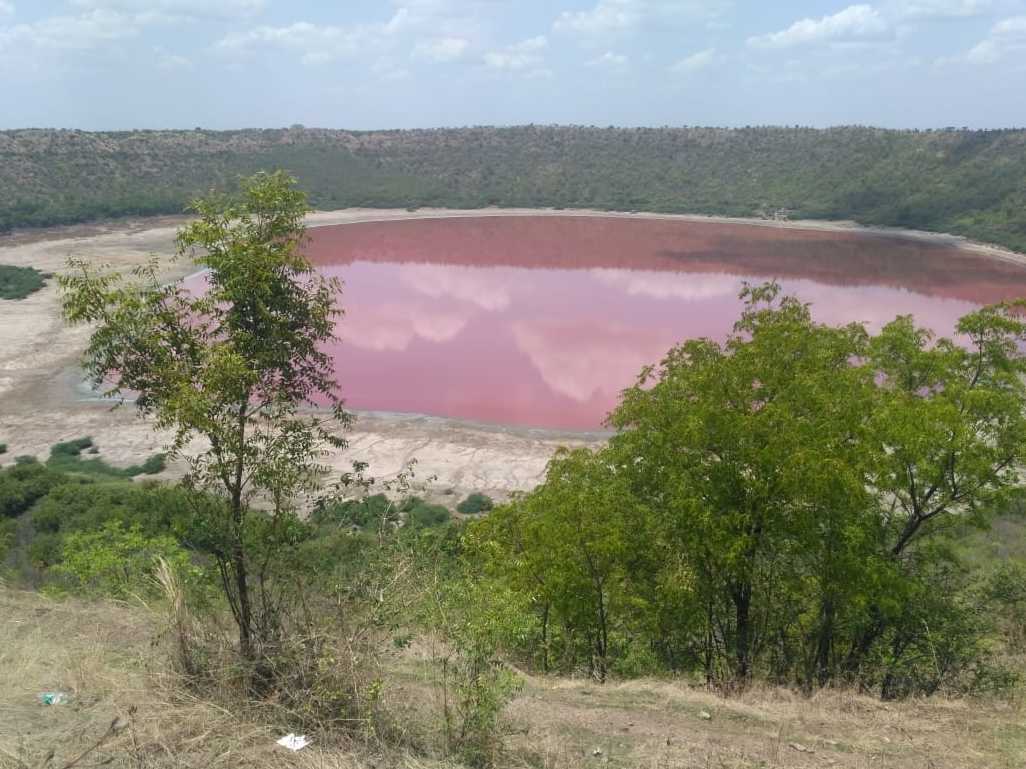Indian lake turns pink leaving locals baffled
Lonar Lake, a 50,000-year-old body of water formed by a meteor-strike, has undergone significant transformation

Your support helps us to tell the story
From reproductive rights to climate change to Big Tech, The Independent is on the ground when the story is developing. Whether it's investigating the financials of Elon Musk's pro-Trump PAC or producing our latest documentary, 'The A Word', which shines a light on the American women fighting for reproductive rights, we know how important it is to parse out the facts from the messaging.
At such a critical moment in US history, we need reporters on the ground. Your donation allows us to keep sending journalists to speak to both sides of the story.
The Independent is trusted by Americans across the entire political spectrum. And unlike many other quality news outlets, we choose not to lock Americans out of our reporting and analysis with paywalls. We believe quality journalism should be available to everyone, paid for by those who can afford it.
Your support makes all the difference.A lake in India which wasn’t pink before, has now turned pink, baffling locals.
Lonar Lake, about 300 miles east of Mumbai in the state of Maharashtra, is a body of water formed by an impact crater from a meteor which struck the Earth some 50,000 years ago.
In recent weeks, the colour of the water in the crater has changed from an unremarkable green to a more remarkable reddish pinky tinge.
It is thought changes to the salinity of the water may be partly responsible for the recent colour alteration, while the presence of unusual bacteria may also play a role. Due to dry weather the lake has also become shallower.
In a video posted to Maharashtra Tourism's Twitter feed, local geologist Gajanan Kharat said the colour of the lake had changed in the past, but had not done so quite so vividly.
“It's looking particularly red this year because this year the water's salinity has increased,” he said.
“The amount of water in the lake has reduced and the lake has become shallower, so the salinity has gone up and caused some internal changes.”
Scientists have taken samples of the water for analysis, which will reveal the main reason for the colour change.
According to The Times of India the lake is famous for being the world’s largest basaltic impact crater.
The paper quoted MN Khairnar, deputy conservator of forests for the region, who said: “We are observing the phenomenon to such an extent for the first time. We will collect samples of the lake water for testing to find the reason behind the occurrence.”
Experts have reportedly noted that Lonar Lake is a highly alkaline body of water with high salinity, and its chemistry supports the growth of a family of bacteria known as halobacteriaceae.
These organisms thrive in highly saline conditions, and some produce a red pigment called bacteriorhodopsin which absorbs sunlight and converts it into energy.
When halobacteriaceae bloom in large quantities, the body of water they are in may therefore take on a reddish hue.
The Times of India also quoted the principal chief conservator of forests & Melghat Tiger Reserve (MTR) field director MS Reddy, who said a similar phenomenon has been observed at the Umria lake in Iran.
He said: “With [the] monsoon, the water level will increase and water temperatures will go down turning the lake water back to its normal colouration.”
The colour change has made it “a hot topic of conversation among the state’s forest department, scientists and nature lovers,” the paper added.
Join our commenting forum
Join thought-provoking conversations, follow other Independent readers and see their replies
Comments